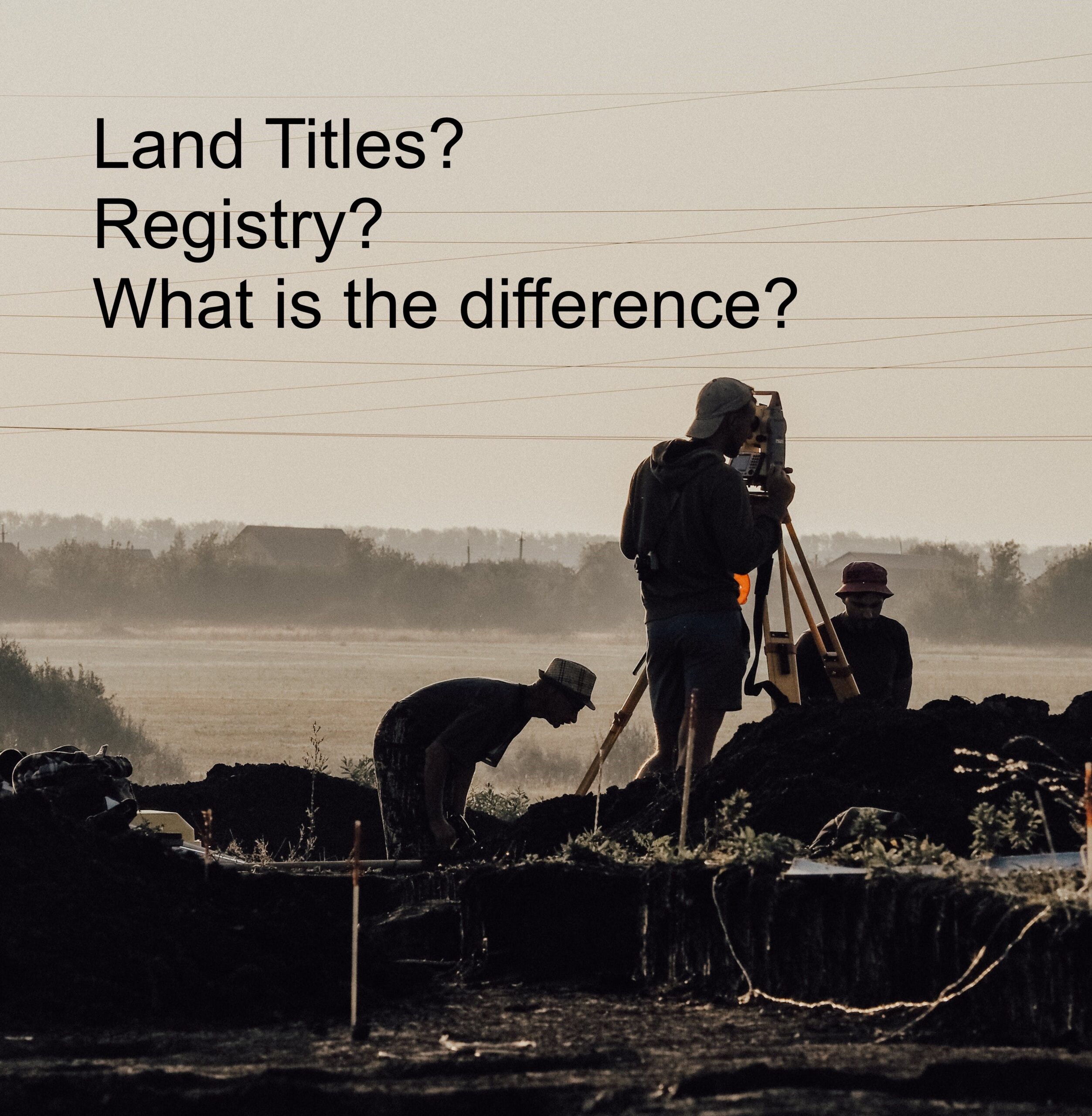Demystifying the Land Titles System
Understanding the Land Titles System is helpful for people engaged in real estate transactions in Ontario. In this blog post, we will shed light on the significance of the Land Titles System and how it impacts property ownership in the province.
The Basics of the Land Titles System vs. the Registry System
When Ontario first started a system of recording land ownership, back in 1795, the system of choice was the registry system, which was governed by the Registry Act. Under the Registry Act, property documents were registered in a central repository, allowing anyone who wanted to, the ability to review title documents. What this meant for someone buying or selling real estate, is that someone trained to review those documents would go to the Land Registry office and pour over 40 years’ worth of title documents to see whether the person selling met (at a minimum) the following criteria:
- That the seller owned the property they were selling;
- That the seller owned all of the property they were selling; and
- That no-one else would be able to make a claim over the property at issue.
While this system was widely used, it did not guarantee good title to the property.
Although Ontario relied on the Registry Act, Western Canada adopted a system initially used in Australia, called the Torrens System. We now refer to the Torrens System as Land Titles. Unlike land held under the Registry Act, Land Titles properties had the advantage of a government-backed system whereby the registered owner was guaranteed to the owner.
The Advent of Land Titles In Ontario
Ontario started the conversion from registry to land titles back in the 1990’s. The conversion process was lengthy and not without its own problems, but it was a movement towards more certainty regarding land ownership. If there were obvious issues with title to property, the land remained in the registry system. If there were no obvious issues with title to the property, it could be converted by the land registry staff into Land Titles. Properties that were administratively converted are known as Land Titles Conversion Qualified (LTCQ). While giving the owner the benefit of the government-backed system, these conversions did not eliminate any potential rights that someone else may have acquired while the property was under the Registry System.
Upgraded from LTCQ is Land Titles Absolute. For a property to be qualified as Land Titles Absolute means that the property was never in the Registry System in the first-place (in other words it was a Land Titles parcel right from the get-go) or someone made an application, and was able to show that there are no other property interests that would defeat the registered owner’s property interests.
Finally, the gold standard is Land Titles Absolute Plus. Most commonly these applications are made when an owner is looking to develop a condominium or a new subdivision. In other instances, it may be necessary for the resolution of title disputes or adverse claims, or if a lender requires it in order to make a loan against a property.
What Do These Legal Terms All Mean?
For most homeowners, there is not a lot of difference between the various types of title. On the face of things, you still get the government-backed guarantee. There is a fund (the Land Titles Assurance Fund) that can be accessed and used to indemnify someone who suffers a loss as a result of problems with the land titles system. In certain cases, a person conveying land will be required to give an indemnity to the Land Titles Assurance Fund before conveying the property. When you add Title Insurance in the mix, it means that people acquiring an interest in land can rest easily at night knowing that they own what they thought they bought.
Key Takeaways
Title Certainty:
The Land Titles System offers a high level of certainty regarding property ownership. Once a property is registered, the title is guaranteed by the government, reducing the risk of ownership disputes.
Fraud Prevention:
With the Land Titles System, instances of fraudulent property transactions are minimized. The stringent verification process helps ensure that only rightful owners can transfer or mortgage their properties.
Streamlined Transactions:
The Land Titles System facilitates quicker and more straightforward property transactions. The streamlined process reduces the time and paperwork involved in buying or selling a property.
Title Insurance:
Title insurance protects against unforeseen issues that may not be covered by the Land Titles System. This additional layer of protection is particularly valuable in complex real estate transactions.
Challenges and Considerations:
While the Land Titles System offers numerous benefits, it is essential to be aware of potential challenges. Encumbrances, easements, or errors in the registration process may still arise. Having a lawyer who understands and can deal with potential problems, and who is well-versed in real estate transactions, is crucial to properly navigate any complexities.
Whether you are a homeowner, buyer, or seller, understanding this system is key to navigating the real estate landscape with confidence. The lawyers and staff at Frederikse Law can help ensure a smooth and legally sound real estate transaction. For more information, contact us today.

